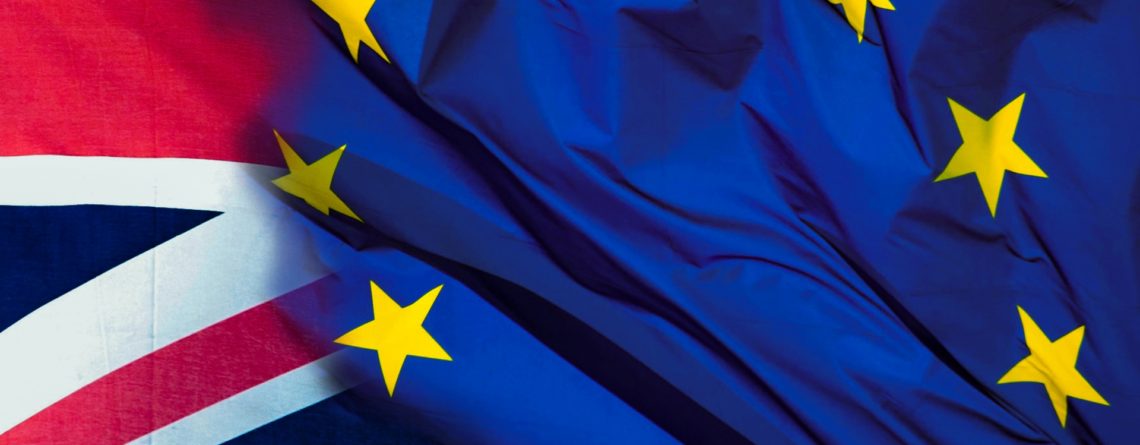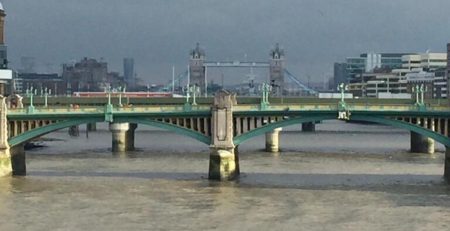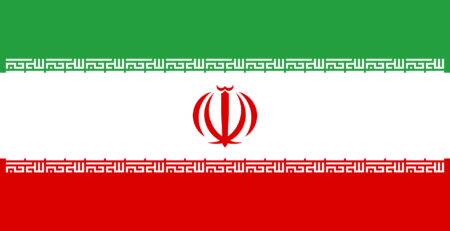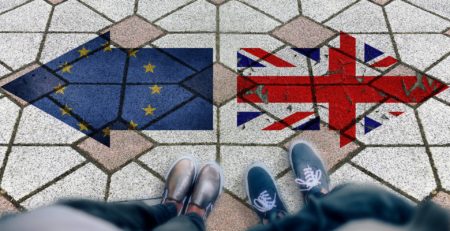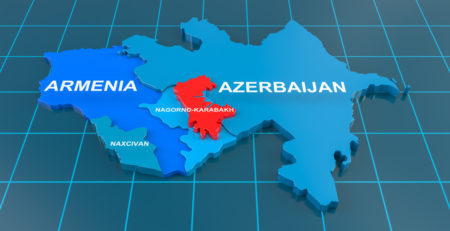The United Kingdom in the balance of Europe and of the international liberal order
Precisely 120 years ago the Boer War began, which was the starting point of the decline of the British Empire, a mere two years after Queen Victoria’s Diamond Jubilee, which, on the other hand, symbolized Britain’s heyday.[1] We should always be wary of the analogies and lessons of history, but it should be noted that, just as the British first underestimated the Boers and eventually entered a war which they were only able to win at very high human, financial and political costs, Brexit also highlights how one part of the British political elite underestimated the possibility of Vote Leave winning the referendum, and another, those who campaigned and voted to leave the European Union, underestimated the ease and costs of the process. Whether the United Kingdom and the European Union reach an agreement or the United Kingdom leaves without an agreement at all, the financial and political costs will be very significant for both parties.
It has been repeatedly stressed by many observers that many of Brexit’s major players, especially those members of the Conservative Party who over the years pressured David Cameron to hold the referendum, are pervaded by a sense of nostalgia for the British Empire. Although it is still considered a great power, in fact the United Kingdom does not rank as high in the hierarchy of powers as it did in the past, and certainly among the various causes behind Brexit is, as the statements of many Vote Leave supporters have shown, the aspiration to project itself more assertively in the international order than it has been able to as a member of the European Union. Ernest Bevin’s 1947 statement that “Her Majesty’s Government does not accept the view that we have ceased to be a Great Power”[2] seems to remain valid, and it is tempting to find in this refusal and in the nostalgia for the Empire determinant variables that would explain Brexit – which, incidentally, is in line with the spirit of the times in Western liberal democracies, pervaded by populist and nationalist movements whose foreign policy aspirations have been well summarized in an isolationist and unilateralist American slogan recovered by Donald Trump: “America First.” A third variable can be added, the discontent of the ‘losers’ or ‘left-behinds’ of globalization, one of the main causes of the emergence of various contemporary populist movements, along with the cultural backlash, two theses analyzed by Pippa Norris and Ronald Inglehart.[3] Much of the classical working class, typically part of the Labour Party electorate, voted in favor of leaving because it felt undermined by neo-liberal globalization in favor of certain social classes in other countries, and one of the main arguments used by the Vote Leave campaign was the threat of increasing immigration that would reinforce labor insecurity.
I believe, however, that the root causes of Brexit can be better understood through a long-term historical perspective of British foreign policy regarding the relations with the European continent. Watching the episode “The Writing on the Wall” of the famous BBC series “Yes, Minister” from 1980 one will be amazed at the glimpse of what British foreign policy towards the European Union would be like. In it, Sir Humphrey Appleby declares that Great Britain has had the same foreign policy objective for 500 years, creating a disunited Europe, and without explicitly spelling out the balancer role played by England (later, the United Kingdom) in the European balance of power, he touches upon it – by stressing that in several conflicts the British fought alongside the Dutch against the Spanish, the Germans against the French, the French and Italians against the Germans, and the French against the Germans and Italians – to justify the entry into the then European Communities for the purpose of destroying the project of European integration from within, which Britain had failed to achieve from the outside. Back to reality, this purpose would have been on the mind of General De Gaulle, who in 1963 vetoed the entry of the United Kingdom into the European Communities for fear that it was an American Trojan horse potentially destructive of the whole European project.[4] It was a fear based on the British efforts to dilute the Common Market project, the foundations of which were laid down by the Treaty of Rome, signed in 1957, into what would be a simple free-trade organization between all Western European countries, to which Britain tried to persuade the six founding members of the European Communities. Failure to do so would drive the United Kingdom to lead the establishment of the European Free Trade Association (EFTA), created in 1960. However, the successes of the Common Market, the tendency for the formation of large regional economic blocs, the economic crisis in the United Kingdom and doubts about the solidity of its “special relationship” with the US led Her Majesty’s government to apply for membership of the European Communities, which would be vetoed a second time, again by De Gaulle, in 1967, and was only accepted after the latter’s replacement by Georges Pompidou.[5]
A skeptical and even cynical international relations analyst, notwithstanding the foregoing paragraph, might agree with Sir Humphrey concerning the British goal of entering the European Communities, especially given the partly unforeseen impact that Brexit will have on the European integration project. This is, however, a restrictive and overly simplifying view of British foreign policy and the eminently peaceful project partly responsible, together with the US and the Atlantic Alliance, for a truly exceptional period of relative peace in Europe’s history in recent centuries. Moreover, in fact, the main objective of British foreign policy was merely to preserve the balance between the European powers, thwarting the hegemonic aspirations of any of them, which meant an essentially reactive foreign policy in which Great Britain was the aforementioned balancer in the conflicts across European soil.
The first power to develop such a policy was not even England, but France led by Cardinal Richelieu, the inventor of the concept of raison d’État upon which he predicated French support for Protestants who, during the Thirty Years War, fought the Holy Roman Empire. Following the Peace of Westphalia, the balance of power system would gradually emerge in the following centuries, within which England would fulfill its national interest of preventing the hegemony of a single power over Europe. This was achieved through various coalitions in which, whenever one of the powers expanded with the aim of conquering the continent, Britain sided with the weaker states. This role reflected its geopolitical reality, whose survival would be threatened by any continental empire. But, according to Henry Kissinger, the strategy of how to pursue this policy, whose original architect was William of Orange and which initially didn’t even please the isolationist British public opinion, was contested by Whigs and Tories in a parallel similar to the disagreement within the US after the two world wars. The Tories advocated intervention on continental soil to restore the balance of power when it was threatened and participation in permanent alliances that would have a decisive influence on the preservation of peace, while the Whigs, with an isolationist perspective, believed that Britain should only be involved when it was actually threatened by an attack from the continent.[6] Even the system of periodic meetings proposed by Lord Castlereagh at the Congress of Vienna, following the defeat of Napoleon Bonaparte’s hegemonic aspirations, to the general public as well as to the British government was too similar to a European government.[7]
From this perspective, the exit from the European Union could be considered as part of a long isolationist line that has infused British foreign policy towards Europe for centuries and allowed it to thwart any threats to its independence from the continent and to maintain an empire on a global scale. This is the basis of the Brexit supporters’ view that such a process is the key to the United Kingdom being no longer bound by Brussels – deliberately ignoring the opt-out clauses that it benefits from, which keep it apart from the single currency and the Schengen Area – and regaining control over its fate by assuming greater international relevance.
However, this ignores four realities: first, the major great powers are substantially more powerful than the United Kingdom, which as one of the leading voices of the European Union would always be able to project greater power in its relations with them than outside the European integration project. Secondly, a markedly isolationist policy such as Brexit has not only already had negative impacts on the way other states perceive the United Kingdom, but will impact the future of NATO and of its relations with the European Union, will weaken the role of the United Kingdom within other international organizations and might even threaten its permanent seat on the UN Security Council, since its legitimacy as a representative of Europe will be lessened, but especially if Scotland becomes independent. Thirdly, Europe today is much less marked by conflict, particularly of a military nature, and much more by peaceful cooperation based on economic integration and prosperity through free trade, hence Brexit is a policy contrary to both the British commercial character and the main objective of British foreign policy of preventing the hegemony of a single power on the European continent – even though Germany’s hegemony in the European Union has been achieved through economics rather than weapons – and will eventually destabilize Europe by, in Robert Kagan’s words, “exacerbating the imbalance of power and leaving an already weakened France alone to face a powerful but increasingly isolated Germany” and contributing to the potential reemergence of the German question by striking “another blow to the institutions that were established to address” it.[8] The British may have forgotten Margaret Thatcher’s words: “By its very nature, Germany is a destabilising, rather than a stabilising, force in Europe.”[9] Lastly, Brexit is pervaded by populism, which is now an internal threat to what Michael Doyle calls the liberal zone of peace, an update of the democratic peace theory derived from Kant’s essay on perpetual peace,[10] which began in the 19th century and is currently comprised of around 100 countries,[11] where the United Kingdom is a core piece and has the potential to contribute, together with Donald Trump in the US and other populist movements on the European continent, to negative structural changes in the international order that will also affect itself. Although authors such as Daniel Deudney and G. John Ikenberry remain optimistic and consider that Brexit ultimately reveals the resilience of liberal institutions by showing the enormous difficulties in breaking up institutional ties and arrangements developed by the various states within them,[12] others, such as T. G. Otte, foresee that the fragmentation of the European project, the core of the transatlantic strategy since the Marshall Plan, will make Europe a source of instability. [13]
International relations are at present much more complex than in previous centuries, and interdependencies are denser and deeper, so any slight disturbance at one point of the international system can have effects elsewhere or throughout the whole system. According to game theory, Brexit is a no-win or lose-lose situation. It’s bound to have remarkable and structural impacts where all parties will be harmed, especially the United Kingdom itself, that has adopted a high-risk strategy with minimal potential gains.[14] In 1856 Lord Palmerston defined the British national interest as doing “what may seem to be best, upon each occasion as it arises” and half a century later Sir Edward Grey reinforced this inaccurate formulation: “British Foreign Ministers have been guided by what seemed to them to be the immediate interest of this country, without making elaborate calculations for the future.”[15] The United Kingdom may be about to realize that pursuing immediate interests in the present world without major calculations for the future carries enormous costs. The British economy will contract and its influence on the world will fade.[16] It is always risky to make such predictions and I may be wrong, but it is unlikely that Brexit will be anything but a Pyrrhic victory.
Notes
Deudney, Daniel, e G. John Ikenberry. «Liberal World». Foreign Affairs 97, n. 4 (2018): 16–24.
Freire, Maria Raquel, ed. Política Externa: As Relações Internacionais em Mudança. 2.a ed. Coimbra: Imprensa da Universidade de Coimbra, 2015.
Jervis, Robert, Francis J. Gavin, Joshua Rovner, e Diane N. Labrose, eds. Chaos in the Liberal Order: The Trump Presidency and International Politics in the Twenty-First Century. New York: Columbia University Press, 2018.
Kagan, Robert. «The New German Question». Foreign Affairs 98, n. 3 (2019): 108–20.
Kant, Immanuel. A Paz Perpétua e Outros Opúsculos. Lisboa: Edições 70, 2009.
Kissinger, Henry. Diplomacia. 2.a ed. Lisboa: Gradiva, 2002.
Norris, Pippa, e Ronald Inglehart. Cultural Backlash: Trump, Brexit, and Authoritarian Populism. Cambridge: Cambridge University Press, 2019.
Patrício, Raquel de Caria. Uma Visão do Projecto Europeu: História, Processos e Dinâmicas. Coimbra: Almedina, 2009.
Smith, Steve, Amelia Hadfield, e Tim Dunne, eds. Foreign Policy: Theories, Actors, Cases. 3.a ed. Oxford: Oxford University Press, 2016.
Zakaria, Fareed. O Mundo Pós-Americano. Lisboa: Gradiva, 2008.


